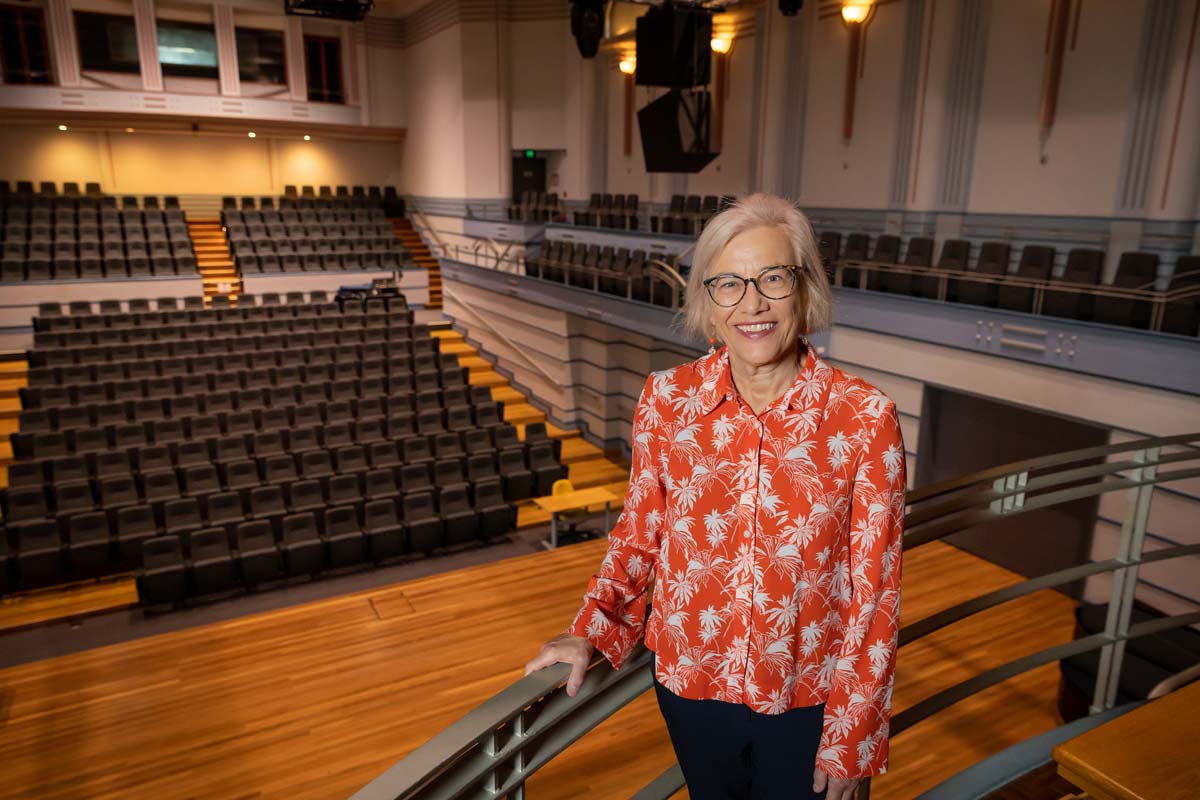Researcher Highlights
Engaging the power of creativity
Since the completion of her PhD in 2016, Helen has been exploring how music affects the mind, body and soul and the impact it has on self-care, empowerment and creating connections. Helen’s current focus is on creative ageing through transformative engagement with music.

A taste for music
“Prior to becoming an academic, I worked for 20 years as a musician and music educator where I observed the impact of music on audiences and learners,” says Helen.
“I worked in some outreach programs in Australia and the UK with school students in low SES regions and adults living with challenges such as cerebral palsy and stroke survival. These experiences were lightbulb moments for me in realising the transformative effects of music on those facing challenges in everyday life.”
Consequently, Helen established creative projects in 2015 and 2018 in partnership with Hunter region high schools and alternative education provider, Hands On Learning in Victoria.
"These had significant transformative effects on some children, including releasing a stream of verbal communication from one primary-aged child who was usually unable to communicate and changing the behaviour of a high school student from disruptive to productive.
Current song sheet
“As part of my current ARC fellowship research, I work with music groups to identify and examine how music-making in the broadest sense can be transformative for ageing communities,” says Helen.
“I’m interested in how engagement with music learning in a community music group can foster change, create new ways of perceiving others, and change how we connect with people and think of ourselves.
“There’s already plenty of research about the positive effects of music across the lifespan, but much less on how to create a social learning environment for music to deliver these effects.”
In parallel to this, Helen is leading a research project, funded by Dementia Australia, which is running creative activities (songwriting and artmaking) for older adults in retirement villages. This project is looking at the same questions about positive effects from the complementary angle of designing courses and measuring effects in terms of cognitive and social wellbeing and brain health.
“An important aspect of my research is to provide resources to aged-care providers so that they can run meaningful programs themselves or feel confident to choose an effective program being offered externally,” says Helen.
Beyond these immediate aims, Helen is committed to widening participation to creative activities for all older adults, whether in aged care, in remote locations, with migrants or refugees.
Thank you for the music
“Our research is about making quality experiences available to older adults, and as we lay down the foundations of our research and our network expands, I look forward to a wider impact,” says Helen.
“Recently we held a creative ageing symposium in Newcastle with the intention of working with representatives of different organisations and stakeholders, including many older adults and researchers, to address some of the challenges of providing robust evidence for, and access to creative activities for older adults.”
The results of the discussions with the symposium attendees will be used to influence public opinion and policy.
In the meantime, the existing research impact is far reaching. Helen’s group is connected to other researchers nationally and internationally, notably with key researchers at the Universities of Melbourne and Queensland, Griffith University, the University of Leeds and Royal College of Music, UK.
“Most recently we have joined the Arts in Care Homes movement, which is based in the UK and are planning the first such event in Australia for 2023,” says Helen.
Partnerships
Helen and her team have developed some rewarding partnerships with aged-care providers, including NovaCare, Uniting Care, Maroba, Whiddon Care and Adventist Care and have established a strong relationship with Lake Macquarie’s Museum of Art and Culture, which runs art courses for seniors, and with Lake Macquarie Seniors Programs staff who run online and face-to-face courses.
So, what is it that continues to inspire and motivate Helen?
“Responses such as: ‘But I did it. I’m proud of myself because I did it,’ and ‘I never ever expected to write a song in my life,’ inspire and motivate me,” says Helen.
“I feel proud when we complete a research project or a stage of a project because we’ve often overcome barriers, persevered through challenging periods and been creative to find solutions. It’s always a moment and outcome to celebrate.
“I'm proud to be engaging in research that has impact as it proceeds and our commitment to work with people and shift the research paradigm from participants to collaborators or co-researchers.”
The University of Newcastle acknowledges the traditional custodians of the lands within our footprint areas: Awabakal, Darkinjung, Biripai, Worimi, Wonnarua, and Eora Nations. We also pay respect to the wisdom of our Elders past and present.